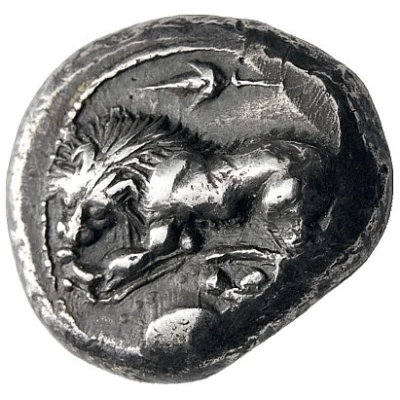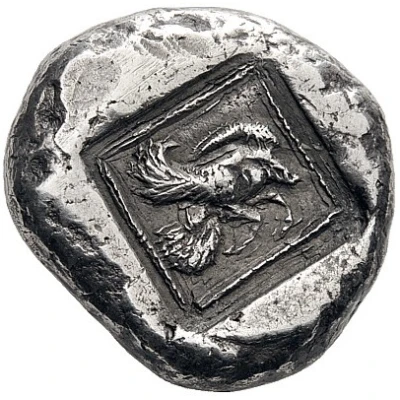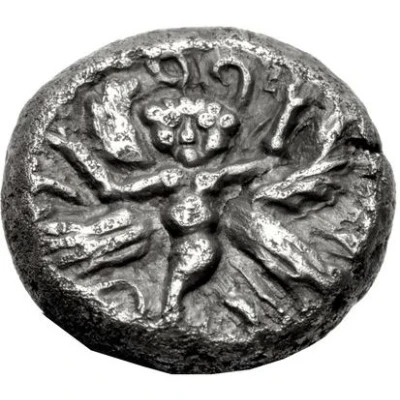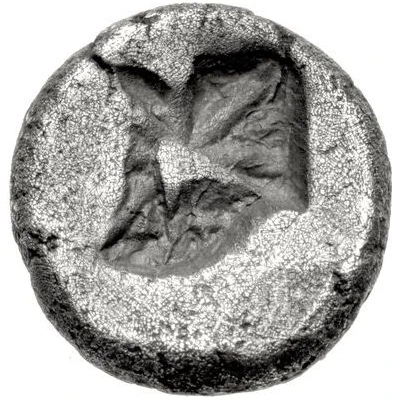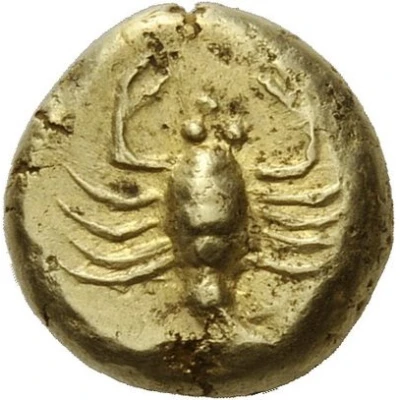
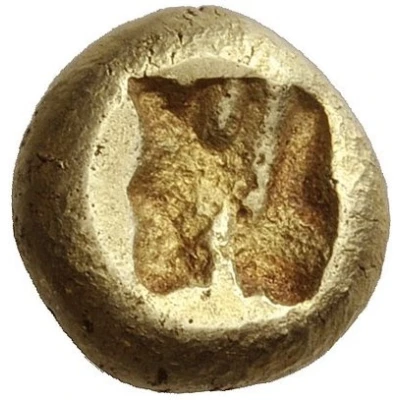

© Nomos AG
Hekte Ionia or Northern Greece 600 BC - 550 BC
| Electrum | 2.73 g | - |
| Issuer | Uncertain Greek city (Greece (ancient)) |
|---|---|
| Type | Standard circulation coin |
| Years | 600 BC - 550 BC |
| Value | Electrum Hekte (14⁄3) |
| Composition | Electrum |
| Weight | 2.73 g |
| Shape | Round (irregular) |
| Technique | Hammered, Incuse |
| Demonetized | Yes |
| Updated | 2024-10-10 |
| Numista | N#183536 |
|---|---|
| Rarity index | 100% |
Reverse
Irregular incuse square
Comment
Note from Nomos AG:This is an extraordinary piece, quite clearly on the Phokaian standard (as is the piece in the Leu sale cited above - there are lighter electrum pieces with scorpions, as Weidauer 170, but they seem to be on the Milesian standard). The possibility that this piece may have been produced in Thrace or Macedon, given the well known bee that is found on uncertain silver coins from that area (as CNG Auction 88, 75) is not unlikely, especially given the rather rough incuse square. There is also a very similar scorpion on some slightly later silver coins that are now also attributed to northern Greece since some have been found there (as SNG Copenhagen 377 and SNG con Aulock 6664 - both published as being from Asia Minor)
Interesting fact
One interesting fact about this coin is that it features an early example of a visual pun. The obverse side of the coin depicts a stag's head, while the reverse side shows a grapevine. This combination of a stag and grapes is a play on words, as the Greek word for "stag" (elaphos) sounds similar to the word for "grape" (elaphros). This visual pun was likely intended to symbolize the fertility and abundance of the land.
